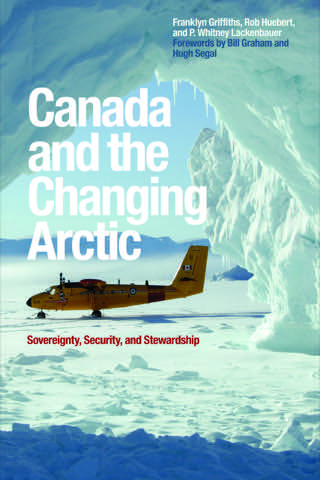Global warming has had a dramatic impact on the Arctic environment, including the ice melt that has opened previously ice-covered waterways. State and non-state actors who look to the region and its resources with varied agendas have started to pay attention. Do new geopolitical dynamics point to a competitive and inherently conflictual race for resources? Or will the Arctic become a region governed by mutual benefit, international law, and the achievement of a widening array of cooperative arrangements among interested states and Indigenous peoples?
As an Arctic nation Canada is not immune to the consequences of these transformations. In Canada and the Changing Arctic: Sovereignty, Security, and Stewardship, the authors, all leading commentators on Arctic affairs, grapple with fundamental questions about how Canada should craft a responsible and effective Northern strategy. They outline diverse paths to achieving sovereignty, security, and stewardship in Canada’s Arctic and in the broader circumpolar world.
The changing Arctic region presents Canadians with daunting challenges and tremendous opportunities. This book will inspire continued debate on what Canada must do to protect its interests, project its values, and play a leadership role in the twenty-first-century Arctic.
Forewords by Senator Hugh Segal and former Minister of Foreign Affairs and of National Defence Bill Graham.
Franklyn Griffiths, Rob Huebert, and P. Whitney Lackenbauer, Canada and the Changing Arctic: Sovereignty, Security, and Stewardship (Waterloo: Wilfrid Laurier University Press, 2011).



